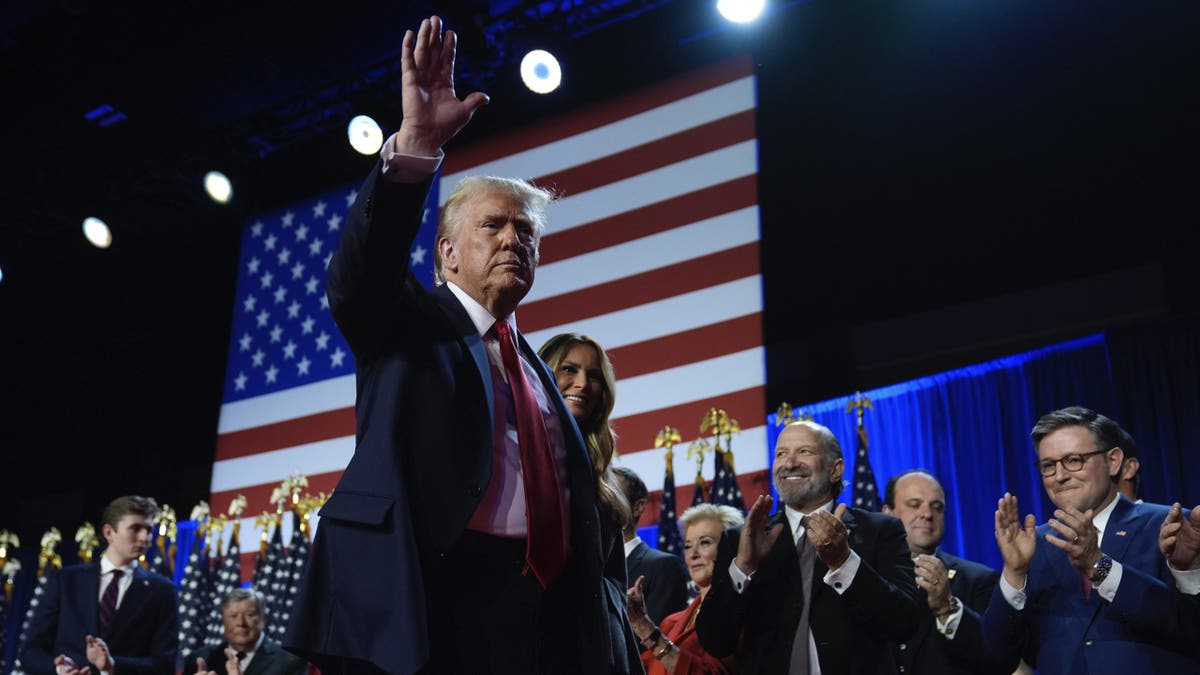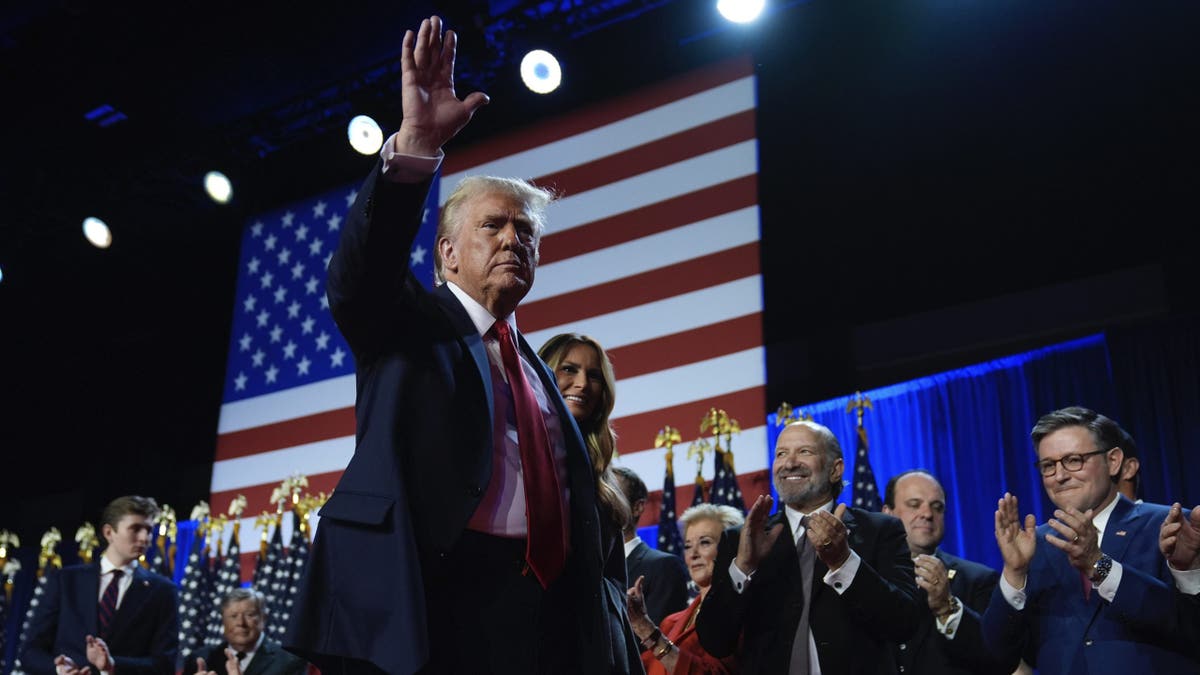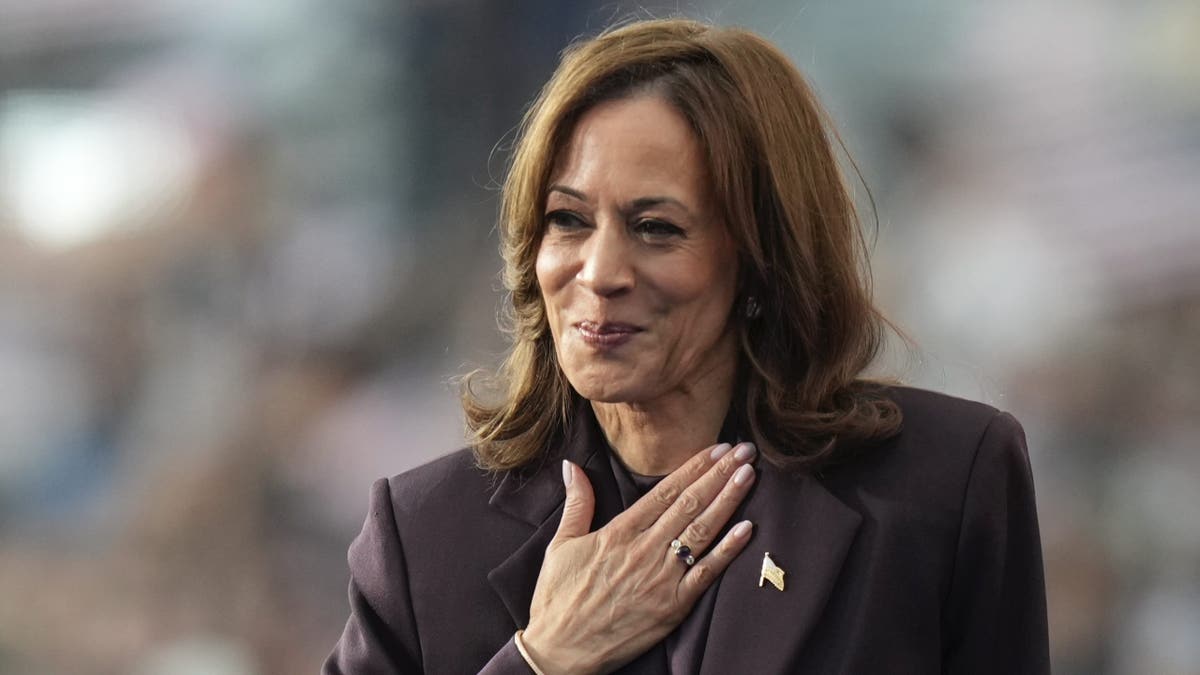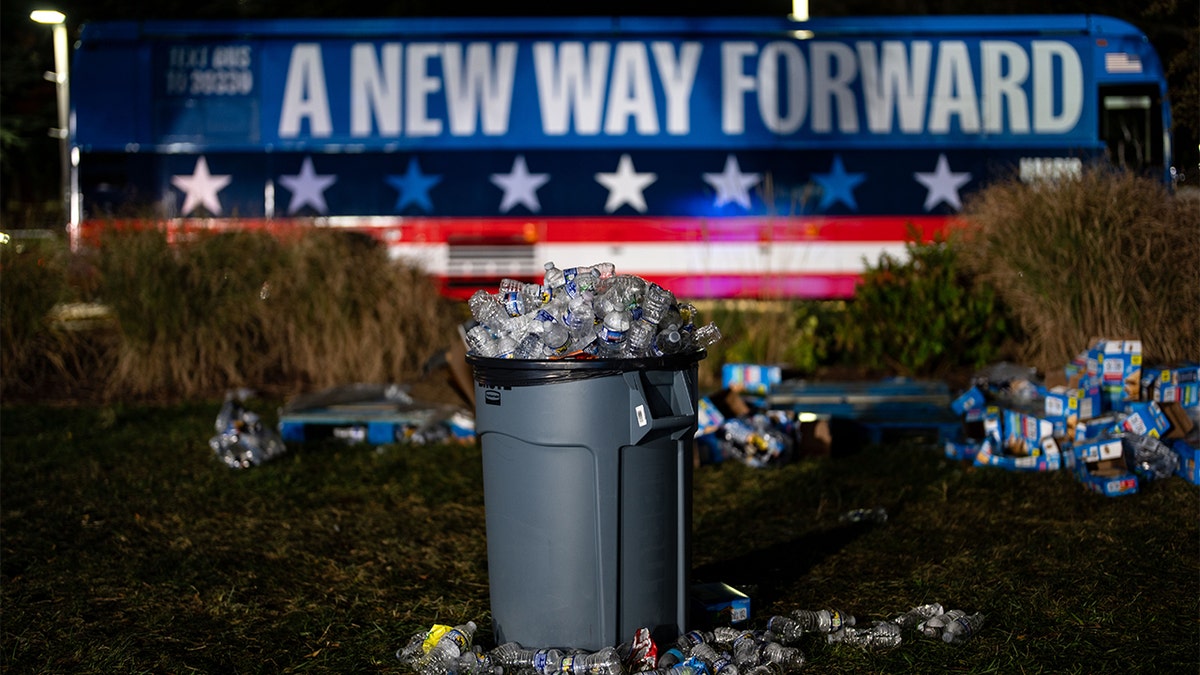
A new poll finds that Democrats are feeling glum about their party’s prospects after Republican President-elect Donald Trump won the 2024 presidential election.
Democratic pessimism about the party’s future is at its highest point in eight years, according to a new Pew Research Center survey. Republicans, on the other hand, are riding high and have the most optimistic outlook about their party recorded since the 2016 election, Trump’s last presidential victory.
For the first time since 2016, more Americans say the GOP, not the Democratic Party, represents the interests of “people like them” very or somewhat well, 50% to 43%.
Trump defeated Democratic Vice President Kamala Harris in the 2024 election, winning 312 Electoral College Votes to her 226 votes and sweeping all the battleground states. Republicans also flipped control of the Senate and managed to cling to their majority in the House of Representatives as well – guaranteeing full control of the federal government with a favorable 6-3 conservative majority on the Supreme Court.

President-elect Donald Trump waves to supporters in West Palm Beach, Florida. (AP Photo/Evan Vucci)
Short of a filibuster-proof supermajority in the Senate, there is not much more Republicans could ask for in terms of power to enact their agenda at the federal level. So Democrats, understandably, are not thrilled about their party.
A majority of Democrats and Democrat-leaning independents, 51%, still say they are optimistic about the party’s future. However, 49% are pessimistic – an increase of 20 percentage points from how Democrats felt after the 2022 midterm election’s mixed results, according to the Pew Research Center. The number of pessimistic Democrats is also about 10 percentage points higher than when Hillary Clinton lost to Trump in 2016.
DEMOCRATIC STRATEGIST HINTS AT RUNNING TO LEAD THE DNC IN ORDER TO MAKE ‘DEMOCRATS FUN AGAIN’

Vice President Kamala Harris gestures as she delivers a concession speech for the 2024 presidential election on Wednesday, Nov. 6, 2024 on the campus of Howard University in Washington, D.C. (AP Photo/Stephanie Scarbrough)
Those who are under age 50 and those further to the left than conservative and moderate Democrats tended to be more pessimistic.
Republicans, however, are far more optimistic about their party today (86%) than they were after the 2022 midterms (65%) and Trump’s 2016 victory (79%).
WHAT WEARY SAN FRANCISCANS ARE SAYING AFTER VOTERS REJECTED ‘STRANGLEHOLD’ OF THE PROGRESSIVE LEFT

Chairs and trash sit in an empty field after the election night watch party for Democratic presidential nominee Vice President Kamala Harris at Howard University on Nov. 6, 2024 in Washington, D.C. (Kent Nishimura/Getty Images)
The Pew Research Center noted the partisan gap in Republican and Democratic views of their respective party’s futures is at 35 percentage points, the largest of any recent election.
Additionally, more Americans now say the GOP best represents their interests than those who say it is the Democratic Party who does so. About half of Americans say Republicans best represent “people like them” compared to 43% who say so about Democrats – a shift from recent years when the Democratic Party was believed to be more representative of “people like them.”
CLICK HERE TO GET THE FOX NEWS APP
That swing of opinion is almost entirely among Republicans and Republican-leaning independents, 85% of whom now say the GOP represents them well or somewhat well. That is a 14-point gain from a previous Pew Research Center survey in June 2023.
Most Democrats, 72%, still say their party represents them at least somewhat well. A small minority on both sides say their respective parties do not represent their interests well.







